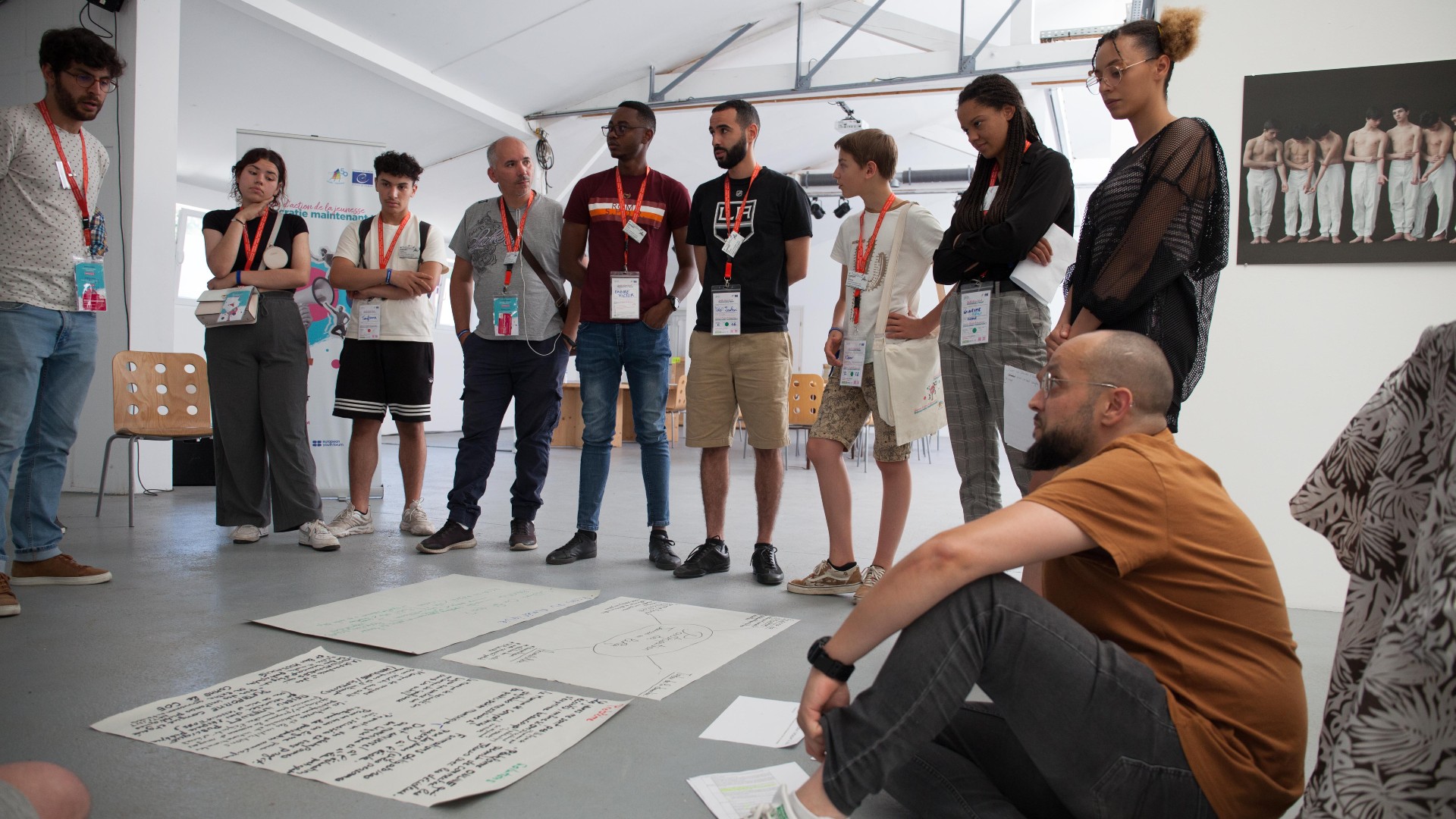Meaningful youth participation

Participation in the democratic life of any community is about more than voting or standing for election, although these are important elements. Young people are motivated and interested in political issues in our societies, however they find that traditional avenues for participation are not delivering on their promise. Youth civil society has been particularly affected by the shrinking civic space, and yet has been delivering support in times of crisis, such as during the COVID‑19 pandemic and to refugees fleeing the war in Ukraine. Discrimination of all kinds, along with a general othering and infantilisation of youth, keeps adding barriers to youth engagement with democratic processes and institutions, creating an atmosphere of mistrust and disenfranchisement.
-
Youth participation in the member states is changing and evolving together with young people and society. The Council of Europe and the member states should invest in research and dialogue among young people, youth civil society, youth researchers and policy makers.
-
Non-traditional ways of youth participation ought to be recognised and supported as legitimate acts of democratic engagement of young people and be given due consideration in research about youth participation.
-
Youth-friendly information and quality formal and non-formal education about democratic participation and decision-making structures and processes at local, national and international levels should be available to all young people.
-
Public authorities at all levels should provide transparent, accurate and accessible information to young people and youth civil society, allowing them to participate in the development and monitoring of the implementation of measures in the youth field.
-
Easily accessible, sustainable and meaningful structural funding should be made available to independent youth organisations, including national youth councils, as important platforms of socialisation and of the exercise of democratic participation.
-
Youth-led experimentations in youth participation, such as forms of deliberative democracy (e.g. randomised youth assemblies) should be promoted as complementing representative democracy and structures for youth participation such as youth councils.
-
Discriminatory barriers to the equal access of all young people to participation opportunities must be recognised and removed in order for them to take part in decision-making processes free of repercussions, retaliation or judgment.
-
Independently managed schemes to provide legal and financial support to young activists who face repercussions (including trials, harassment, injury, exile, etc) for their involvement in democracy should be created.
-
Young people must be encouraged and supported to stand for office including, for example, through the introduction of youth quotas for electoral lists; particular attention must be given to young people from minorities.
-
Young people in rural areas deserve equal opportunities when accessing information and education, as well as to participate; youth centres, including mobile ones, should be created to provide youth work and non-formal education as well as information in these areas.
-
Independent student councils must exist in every school so that young people have the power to concretely influence decisions in their schools and local communities; young people should be involved in the definition of the curricula and content of the topics studied in schools so they respond to their needs and interests.
-
All democratic processes must ensure that minority voices are heard in society and minorities are part of the decision-making process; structures dedicated to youth should include not only those elected by a majority, but also give voice to the wide diversity of young people.
-
Mental health services must be provided and made easily accessible to young people, be youth-friendly and tailored to respond to the needs of minority youth.
-
Young people need to have access to quality youth work and non-formal education, regardless of where they are; member states should ensure quality education for all young people, emphasising the particular and urgent attention to rural and minority youth. This implies investment in the infrastructure required for youth work and the training of youth workers.
-
Youth workers must be provided with education and networking spaces to reach out to and empower minority youth, including outreach measures; non-formal educational materials on meaningful democratic youth participation and on addressing discrimination and inequality should be made more widely available.
Revised European charter on participation of young people in local and regional life
European Charter of Local Self-Government
12 Principles of Good Governance
Recommendation CM/Rec(2018)4 on the participation of citizens in local public life
Guidelines for civil participation in decision making
Recommendation CM/Rec(2016)7 on Young People’s Access to Rights


